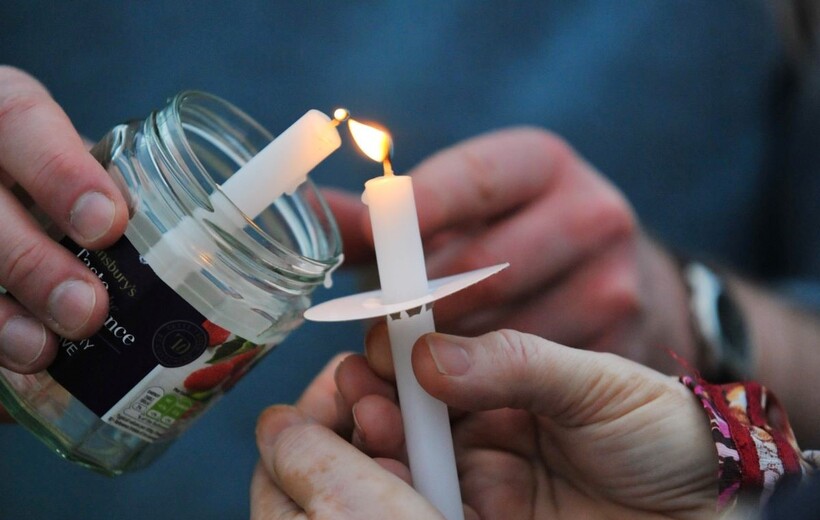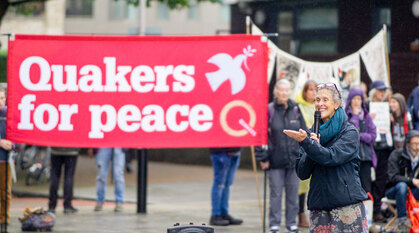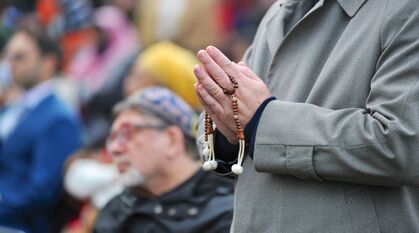The role of ordinary people
Holocaust Memorial Day takes place every year on 27 January. Oliver Robertson reflects on this year's theme.

Ordinary people can do extraordinary things, for good and ill. We see this most starkly at extreme times, such as during the Nazi Holocaust of the 1940s. The UK remembers this each year on 27 January, and Quakers are invited to take part in Holocaust Memorial Day commemorations.
Here, we remember the victims of recognised genocides in Cambodia, Rwanda, Bosnia and Darfur, as well as Jews, Roma and Sinti people, disabled people, LGBT people, and political opponents killed by the Nazis and their collaborators. Quakers were instrumental in the Kindertransport, which brought German Jewish children to Britain in 1938-39: here is one Kindertransportee's story.
The ceremony, whether in person or online, is extremely powerful and very moving. It covers both the horror of genocide, as told by survivors and their families, and the steps taken to prevent this ever happening again. I have always been struck by how directly the system of human rights that was created after World War II is linked to the Holocaust: an attempt to put in law the limits of how people should treat each other, and to set out that there are some things it is never okay to do to someone.
Responding to cruelty and injustice
It can seem a long path from dismissing people's value to intentionally murdering them, but the awful endpoint is why we should not take even one step on this road. One Holocaust survivor went viral on social media in January, for a video in which she saw this link and challenged the UK Home Secretary on her descriptions of refugees.
This action is in some ways very ordinary – a member of the public engaging respectfully with the person elected to represent them. It is in some ways extraordinary – holding a mirror up to dehumanising language at a time when it's becoming ever-more normalised. It also highlights well the theme of this Holocaust Memorial Day: Ordinary People, and how they respond to the cruelty and injustice being perpetrated around them, and sometimes by them.
The ordinary and the extraordinary
Not everyone has to do extraordinary things. Some people continue to do the regular things they have always done, even in exceptional situations. Sometimes continuing to do ordinary things, in appalling times, IS the extraordinary thing. But doing things for the common good and that uphold the humanity of others, is worthy of commemoration. Hearing the stories of what others have done can serve as both a guide and an inspiration for how we could act in extraordinary times.
"We can all", say the Holocaust Memorial Day materials, "make decisions to challenge prejudice, stand up to hatred, to speak out against identity-based persecution, to shop responsibly". Or, to put it another way, respect for the humanity in all of us begins with respect for the humanity in each individual, collectively making big changes through our everyday actions. As Quaker faith & practice 23.09 says: "We are all the poorer for the crushing of one man, since the dimming of the Light anywhere darkens us all."
On 27 January at 4pm, everyone is invited to light a candle and safely place it in their window to remember those who were murdered for who they were and stand against prejudice and hatred today.


